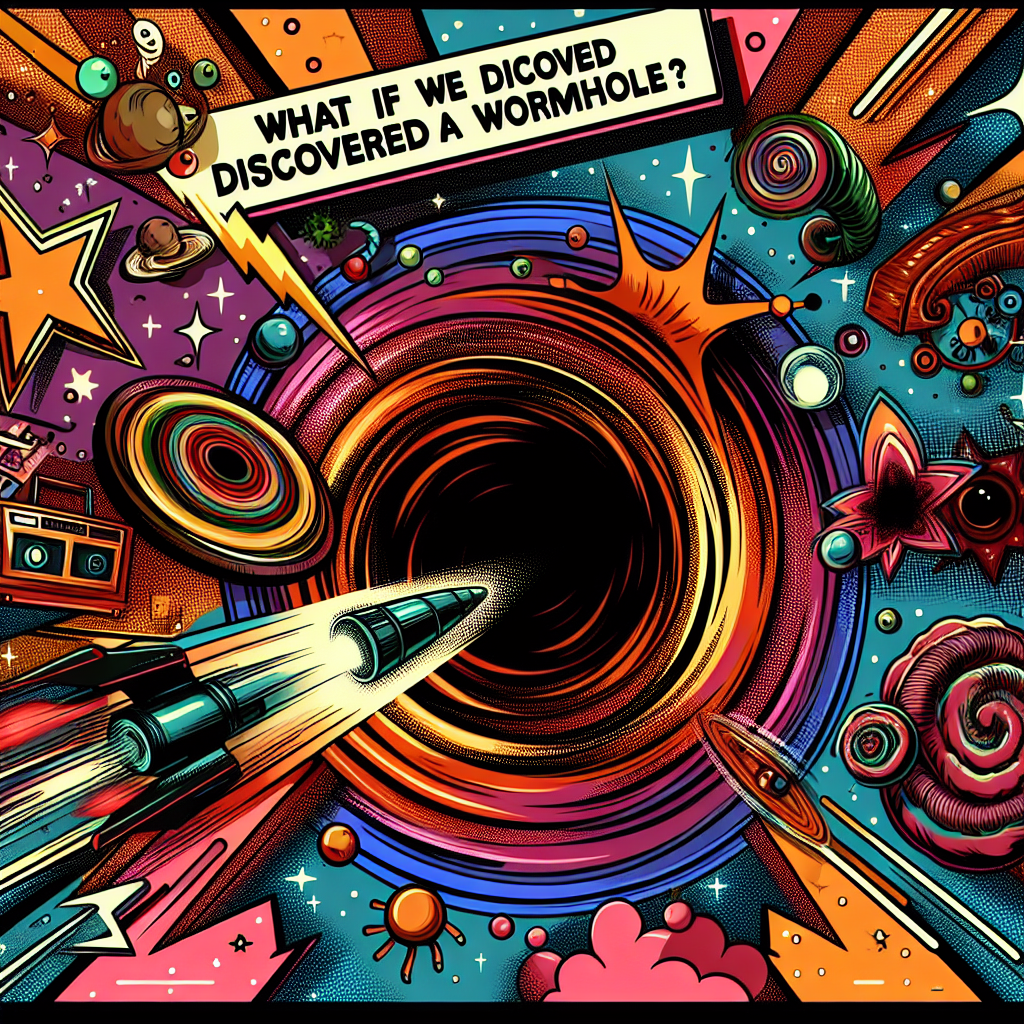Wormholes are hypothetical shortcuts through spacetime, potentially connecting two distant points in the universe. Imagine taking a tunnel through a mountain instead of driving around it - that's roughly the idea behind a wormhole. If we discovered a wormhole, it would be a groundbreaking finding, offering a potential way to travel vast distances in a relatively short period.
The concept of a wormhole arises from Einstein's theory of general relativity, which describes gravity as the curvature of spacetime. Think of spacetime as a trampoline: place a heavy object, like a bowling ball, on it, and it warps, creating a curvature. Now, imagine two points on this trampoline, each with a heavy object on top. If the curvature is strong enough, it's possible to create a tunnel or "wormhole" connecting these two points, allowing for shortcuts through spacetime.
There are a few different types of wormholes, but the most commonly discussed are traversable wormholes. These are hypothetical tunnels that could be used for travel, potentially allowing us to reach distant parts of the universe in a relatively short period. To illustrate, imagine you're on one side of the universe, and your friend is on the other side. Normally, it would take a spacecraft many years to reach your friend. But if you had a traversable wormhole, you could travel through it, emerging near your friend in a much shorter time.
However, creating and maintaining a traversable wormhole is a complex task. It would require a type of exotic matter that has negative energy density, which is difficult to produce. Imagine trying to push a heavy object up a hill: you need a lot of energy to do so. Negative energy density is like having an invisible force that helps push the object up the hill, making it easier to create the wormhole.
Another challenge is stabilizing the wormhole. Think of it like a tunnel through spacetime: if it's not properly supported, it could collapse, making travel through it impossible. We would need a way to keep the wormhole open and stable, allowing for safe passage.
If we discovered a wormhole, it would likely be in a distant part of the universe, possibly near a black hole or neutron star. These regions have extremely strong gravitational forces, which might be necessary for creating and maintaining a wormhole. Astronomers might detect a wormhole by observing the way it affects the light around it, similar to how a black hole affects nearby stars.
If we were able to travel through a wormhole, it would likely be a rough ride. The gravitational forces involved would be immense, and the stress on the spacecraft would be enormous. It's like riding a rollercoaster, but instead of going up and down, you're being squeezed and stretched by gravitational forces.
Some theories suggest that wormholes could be used for time travel. Imagine entering one end of the wormhole and emerging at a different point in spacetime, potentially in a different era. However, this idea is still purely theoretical and raises a number of complex paradoxes. For example, if you went back in time and changed something, how would that affect the present and future?
The discovery of a wormhole would raise many questions about the fundamental laws of physics. It could potentially allow us to travel to distant parts of the universe, but it would also require a deep understanding of exotic matter, gravitational forces, and the stability of spacetime.
Some scientists propose that wormholes could be used for faster-than-light communication. Imagine sending a message through a wormhole, allowing it to reach a distant part of the universe in a much shorter time than light could travel. However, this idea is still purely theoretical and would require a much deeper understanding of wormhole physics.
In conclusion, discovering a wormhole would be a groundbreaking find, offering a potential way to travel through spacetime. However, it would require a deep understanding of exotic matter, gravitational forces, and the stability of spacetime. The implications of wormhole travel are immense, and it's an area of ongoing research and exploration in the fields of astrophysics and cosmology.
Here are some key points to summarize:
- Wormholes are hypothetical shortcuts through spacetime, potentially connecting two distant points in the universe.
- Traversable wormholes would allow for travel through spacetime, but creating and maintaining them is a complex task.
- Discovering a wormhole would likely be in a distant part of the universe, possibly near a black hole or neutron star.
- If we could travel through a wormhole, it would likely be a rough ride, with immense gravitational forces affecting the spacecraft.
- Wormholes could potentially be used for time travel, but this raises complex paradoxes and is still purely theoretical.
- The discovery of a wormhole would raise many questions about the fundamental laws of physics and our understanding of the universe.

Popular Space Questions
Find answers to the trending space questions being asked by our community on social media.
- How many galaxies are there in the universe?
- What would happen if a rogue planet entered our solar system?
- How far is Pluto from Earth?
- How many planets are in the Milky Way?
- How big is the Earth?
- What are the planets in order?
- How many planets are in our solar system?
- How big is the universe?
- What would happen if a pulsar's beam hit Earth?
- What if we found a way to manipulate gravity?